Global Warming and Refugees
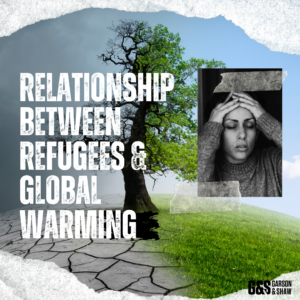
Global warming and refugees are interconnected in several ways, although it’s important to note that climate change itself does not directly create refugees. Instead, it exacerbates existing social, economic, and environmental vulnerabilities, leading to population displacement and migration. Here are some key points on the relationship between refugees and global warming:
1. Environmental Displacement: The impacts of climate change, such as rising sea levels, extreme weather events, droughts, and desertification, can render certain areas uninhabitable or significantly degrade living conditions. This environmental displacement forces people to flee their homes and seek refuge elsewhere.
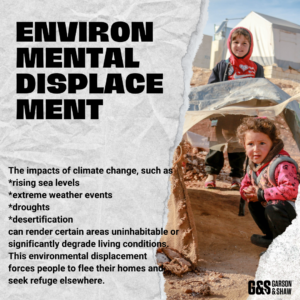
2. Resource Scarcity: Climate change affects the availability and distribution of vital resources like water and food. As certain regions experience decreased agricultural productivity, water scarcity, or the loss of livelihoods due to environmental degradation, people may be forced to migrate in search of better conditions and opportunities.
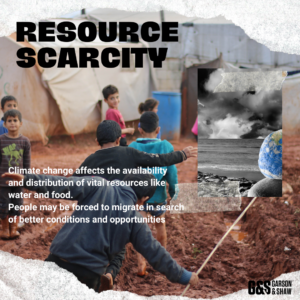
3. Conflict and Social Unrest: Climate change can act as a “threat multiplier,” exacerbating existing social, political, and economic tensions within societies. Resource scarcity, competition over limited resources, and displacement can lead to conflicts, social unrest, and even civil wars, prompting individuals and communities to seek safety and protection in other countries as refugees.
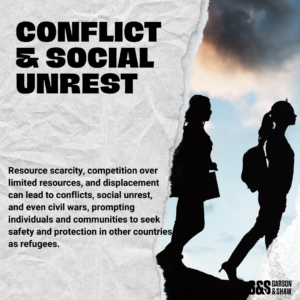
4. Urbanization and Informal Settlements: Climate change-induced displacement often leads to increased urbanization, as people move from rural areas to cities in search of better living conditions. This influx can strain urban infrastructure, housing, and resources, resulting in the emergence of informal settlements or slums, which pose their own challenges.
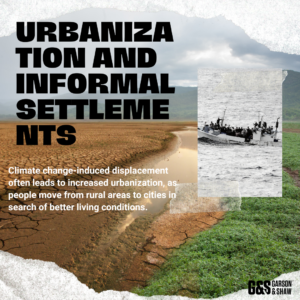
5. Humanitarian Impacts: The complex interaction between climate change, displacement, and migration can overwhelm existing humanitarian systems and create challenges in providing assistance to affected populations. Displaced individuals may face heightened vulnerabilities, including inadequate access to shelter, healthcare, and protection, requiring international cooperation and support.
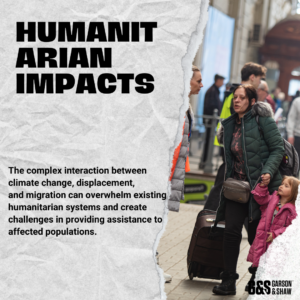
It’s important to understand that while climate change contributes to the displacement of people, refugees are also affected by various other factors such as political conflicts, human rights abuses, and economic instability. The relationship between refugees and global warming is complex, involving multiple intersecting causes and consequences.
Check out this article “The Economic Impact of Refugees in America“

